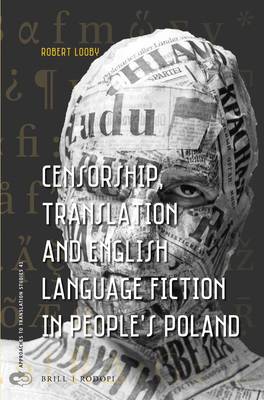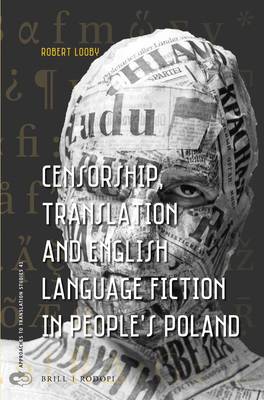
- Afhalen na 1 uur in een winkel met voorraad
- Gratis thuislevering in België vanaf € 30
- Ruim aanbod met 7 miljoen producten
- Afhalen na 1 uur in een winkel met voorraad
- Gratis thuislevering in België vanaf € 30
- Ruim aanbod met 7 miljoen producten
Zoeken
Censorship, Translation and English Language Fiction in People's Poland
Robert Looby
€ 123,95
+ 247 punten
Omschrijving
This book studies the influence of censorship on the selection and translation of English language fiction in the People's Republic of Poland, 1944-1989. It analyses the differences between originals and their translations, taking into account the available archival evidence from the files of Poland's Censorship Office, as well as the wider social and historical context.
The book examines institutional censorship, self-censorship and such issues as national quotas of foreign literature, the varying severity of the regime, and criticism as a means to control literature. However, the emphasis remains firmly on how censorship affected the practice of translation. Translators shaped Polish perceptions of foreign literature from Charlie Chan books to Ulysses and from The Wizard of Oz to Moby-Dick. But whether translators conformed or rebelled, they were joined in this enterprise by censors and pulled into post-war Poland's cultural power structures.
The book examines institutional censorship, self-censorship and such issues as national quotas of foreign literature, the varying severity of the regime, and criticism as a means to control literature. However, the emphasis remains firmly on how censorship affected the practice of translation. Translators shaped Polish perceptions of foreign literature from Charlie Chan books to Ulysses and from The Wizard of Oz to Moby-Dick. But whether translators conformed or rebelled, they were joined in this enterprise by censors and pulled into post-war Poland's cultural power structures.
Specificaties
Betrokkenen
- Auteur(s):
- Uitgeverij:
Inhoud
- Aantal bladzijden:
- 232
- Taal:
- Engels
- Reeks:
- Reeksnummer:
- nr. 41
Eigenschappen
- Productcode (EAN):
- 9789004293052
- Verschijningsdatum:
- 27/03/2015
- Uitvoering:
- Paperback
- Formaat:
- Trade paperback (VS)
- Afmetingen:
- 155 mm x 231 mm
- Gewicht:
- 362 g

Alleen bij Standaard Boekhandel
+ 247 punten op je klantenkaart van Standaard Boekhandel
Beoordelingen
We publiceren alleen reviews die voldoen aan de voorwaarden voor reviews. Bekijk onze voorwaarden voor reviews.











